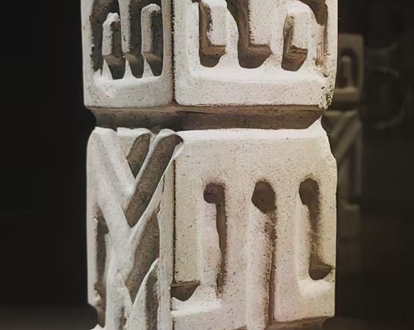Relational and Social Constructionist Consortium of Ecuador (IRYSE)
Diego Tapia Figueroa, Ph.D. and Maritza Crespo Balderrama, M.A.
The leaderships that enthrone the dictatorship of intransigence are hidden behind discourses of productivity, success, perfectionism, meritocracy, results, and all the paraphernalia of those who abuse their power and privileges. They manage to impose alienating work and lifestyle styles. These abusive hierarchical structures oppress, subjugate, and dispossess.
Mediocre and ignorant bosses, owners of their emotional underdevelopment, maintain the hierarchy as if it were a value deserving of respect. They are experts in exacerbating the feeling that the pathetic existence of puppets is a panacea for the majority of citizens without stable, well-paid work and decent jobs. This circus of grotesque things includes managers, CEOs, bosses, directors, and “leaders” who generate material, human, cultural, and political misery.
Impunity is increasing, and forms of workplace sexual harassment and abuse of power are made invisible, silenced, and covered up. It is useful to be aware and disseminate information for the defense of human rights and labor rights, considering Convention 190 of 2019 by the International Labor Organization (ILO) against workplace violence and harassment. Although the definitions of “violence” and “harassment” vary from country to country, the ILO defined these concepts as “a set of unacceptable behaviors and actions” that “are intended to cause, or are likely to cause physical, psychological, sexual, or economic harm.” This includes physical or verbal abuse, intimidation and harassment, sexual harassment, threats, and stalking, without prejudice to other acts that violate people’s rights.
What is your leadership philosophy? What sets it apart from others? What is the most significant aspect of this different philosophy?
Leadership means a way of being with others and doing with others, a relational ethic that jointly builds social well-being. It is guided by consistent principles and values, an attitude of trust and respect towards others, with a permanent dialogue that generates authentic transformations.
This new leadership model assumes responsibilities to help people become increasingly autonomous and independent, developing their abilities to discern and decide with a renewed awareness of what they could be and would like. It encourages welcoming different perspectives, cultures, and unique interpretations, which can exist with full legitimacy within diverse groups, providing a wide resource of creativity and innovation that generates other ways of facing and solving everyday activities.
Leadership is a powerful story written in every dialogue and connection in a person’s life. It is co-created with the courage to choose to tell meaningful stories. These stories provide the basis for learning and development for all who talk, listen, and make possible the positive recognition and appreciation of those stories shared with sensitivity and generosity.
Human events become intelligible only after being chronicled. Through conversations, life experiences, and events related to suffering and dilemmas, are formed and reformed. Meanings and understandings, constructions and reconstructions of realities, and being with others are created and recreated.
In a leadership context, leaders and participants work together to think, do, lead, and expand their perspectives and abilities to assume responsibility for their decisions and actions, developing collaborative spaces.
Leaders are characterized by:
- Focusing on what works, achievements, and positive exceptions
- Innovating
- Focusing on people
- Inspiring confidence
- Being authentic
- Leaving room for others to grow and being open to transformation
- Setting limits based on respect, kindness, and dialogue
- Valuing relational connection, reflective pragmatics, deep listening, and understanding
- Asking new questions
- Practicing self-knowledge and responsible self-care
- Generating consistent transformations
- Inspiring intelligent ways of being with others, intelligent dialogue, and appreciating differences
- Co-creating a culture of integrity and good treatment based on relational ethics
These leaders base their credibility, vision of the future, and consistency on the quality of their ties, respectful human connections, relationships, and meaningful conversations. They are committed to building relationships of genuine human interest and good treatment. A leader does not have subordinates; they have interlocutors with whom they share common purposes. They are capable of embodying and modeling connection and resilience through their practices and discourses, adhering to relational ethics.

English translation by Bruno Tapia Naranjo



